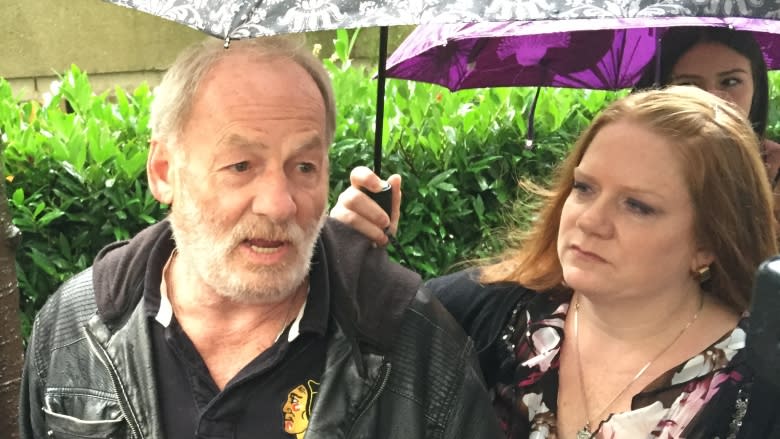Ivan Henry's daughter says he had trouble adjusting after wrongfully spending 27 years in prison
A B.C. man who spent 27 years behind bars after being wrongfully convicted of sexual assault sometimes begged his daughter to take him back to prison following his release.
Tanya Olivares testified Tuesday at the B.C. Supreme Court trial where her father, Ivan Henry, is seeking compensation for his ordeal from the City of Vancouver, the province and the federal government.
Describing the situation as "surreal," Olivares said her father had a hard time adjusting to life in her family's suburban North Vancouver home when he was released on bail in 2009, pending an appeal of his case.
He refused to leave the house, worried police might take him away. He would stand by his bed at night, ready for a head count. Olivares testified her father was tormented by nightmares, sometimes screaming in his sleep: "Get him off me!"
"He wakes up and he's got scratches on his own face," she said. "He just couldn't adjust. It was really really difficult. I feel I'm still helping him adjust to life. It's an ongoing process."
'Our world crashed down on us'
B.C.'s Court of Appeal acquitted Henry of 10 counts of sexual assault involving eight victims in 2010. He claims he was the victim of negligent police work and the "tunnel vision" of prosecutors who hid evidence that could have exonerated him.
Pausing at times to wipe away tears, Olivares detailed a harrowing childhood; her mother was a drug addict and her father was arrested on the sex assault charges in 1982 when she was nine years old. She watched his arrest on the TV news.
"From the moment we learned that he was arrested, our world kind of crashed down on us," she said.
Olivares testified she wrote to Henry in prison, but she did not see him again until 1994. She said she effectively raised her younger sister and protected her mother, saving her from at least five or six overdoses.
She told friends her father was dead.
"I never told anybody where my dad was," Olivares said. "If I said he was dead, that would just end the questions."
After being convicted of the sex assaults, Henry was declared a dangerous offender and given an indefinite sentence. But despite the "horrific" nature of the allegations against him, Olivares said she never doubted her father's innocence.
"I never believed them for a moment," she said. "Right from the moment that I heard them."
Olivares said she left home as a teenager, shortly before her mother died of an overdose in 1990.
'Tortured with his loss'
Olivares told the court that she and her sister Kari never forgot about their father. The woman said she read stories about him at the library and eventually re-established contact with him while he was being held in prison. The sisters embarked on a letter writing campaign to try to get him an appeal.
Henry's daughters also lobbied to have him transferred from a prison outside the province to Mountain Institution in B.C., where they could visit him.
In 2006, a review of sexual assault cases pointed the finger at another man and concluded Henry may have been the victim of a miscarriage of justice.
Henry was 63 years old when he was released, and Olivares said his health was pitiful. His skin was grey and bloated and he had high blood pressure.
She testified her father has gradually readjusted to life on the outside, but still struggles with insecurity, anxiety and the loss of time.
"This is draining. This whole thing. The review. The acquittal. The civil suit. Everything," she said.
"I have to assure my dad all the time that it's going to come to an end."
Olivares fought to hold back tears as she described the impact of the family's ordeal on her younger sister.
"She really was tortured with his loss on a daily basis," Olivares said.
"She couldn't get over the fact that she missed out on him for nearly 28 years."
Olivares said her sister battled substance abuse and was sent into a "tailspin" with each new court proceeding.
Kari Henry died of an overdose in January. She was 39, the same age as her mother was when she died.
"It was all of those years she just couldn't get back," Olivares said. "She would say to me, 'He's not the dad who left.'"



